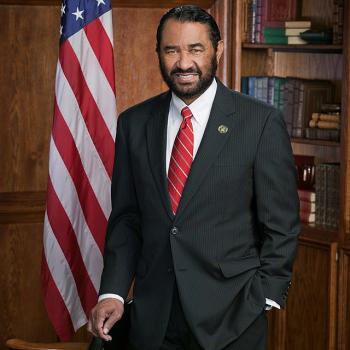We’re getting snippets of this, and snippets of that out of the Synod on the Family.
One word that has appeared and is floating around like one of those word bubbles above characters heads in a cartoon is gradualism. Even John Allen over at Crux, has made note of the sudden uptick in gradualism talk. “Gradualism … seemed on the verge of being stricken fem the official lexicon, is back with a vengeance,” he tell us.
Unfortunately, ordinary pew-sitting Catholics like me have been pummeled and pounded with moral relativism these past few years. We’ve had the cant of what’s-happening-now talking-head theology thrown in our faces as we’ve been called everything from bigots to birdbrains for attempting to stay true to the Church’s teachings. In times like this, the sudden employment of the word “gradualism” by our bishops as they talk about those teachings fills us with anxiety.
Are our religious leaders going to pull the rug out from under us and announce that the teachings we’ve given real emotional blood to support are now as relative as the larger society has told us they are? The anxiety, which runs deep in a lot of hearts, is that our bishops are going to end up playing us for chumps for having believed them in the first place.
I’m no theologian, but I think — emphasis think — that gradualism, as it applies to Catholic teaching is that you don’t have to be all the way home to perfection or order to be on your way there. It sounds like shorthand way of saying that we are all on a journey in this life, and, in terms of our walk with Christ, we fall down a lot and have to get back up.
The easiest way I can explain what I’m trying to say is to describe my own self at the time of my conversion experience. I had committed the whole library of serious sins. I could go down the Ten Commandments and tick them off. Took the Lord’s name in vain? Check. Bore false witness? Check. Killed innocent people? Done and done.
I was rotten with sin, but the only sin I believed was a sin happened to be something that neither the press nor most of my friends know about. I confessed it to my priest and I’ve certainly taken it to God. I think I’ll let that ride and not confess it here.

Suffice it to say, that I believed I had done something cruel to another person and I was grieved to my core over it. So grieved that, after 17 years of telling God to buzz off, I reached out to Him. “Forgive me,” was all I said, but it was enough.
I experienced a homecoming that puts the welcome given the prodigal son to shame. I was, as Protestants say, washed clean in the Blood of the Lamb.
Buutttttt … I stil didn’t know my other sins were sins.
I know that sounds daffy.
But I had lived by my own lights, been my own little g god for so long, drunk so many gallons of my own Kool-Aid that I honestly believed that, say, abortion, was a positive good that saved women’s lives. I believed that right down to the ground. No questions. No doubts.
I could go on for a long time, cataloguing what I didn’t know about my own sinful state. But the point I’m making needs no further explication, and here it is:
God accepted me just exactly as I was.
Let me say that again: God accepted me just exactly as I was.
I didn’t have to go to the spiritual dry cleaners and get all spiffed up to be acceptable to Him and loved by Him.
I didn’t need to have my nose rubbed in my sins and be humiliated for them.
I didn’t even need to know what my sins were.
All I had to do was say “yes” and God loved me from death to life in an instant of overwhelming grace.

The interesting part is that He didn’t start educating me right away. At first, it was like a honeymoon of sorts. I fell blindly and absolutely in love with Jesus and He loved me back. I felt so free, clean and loved.
And I was.
Gradually, this Being (Who I did not understand at the time was the Holy Spirit) Who had been walking with me since I said “Forgive me,” began to show me my sins. It was gently done. He would show me something I had done, and I would realize that it was wrong.
It was — get ready for this now — almost a year and a half before He raise the question of abortion, and then it was as gently done as all the rest. Just, this is wrong.
A lot came later, but once again, this suffices for the point I’m trying to make.
Gradualism is not just a theological construct. It is a lived reality. What I experienced when the Holy Spirit began the process of re-shaping me into what He wanted me to become, what He had always intended me to be, was God’s own gradualism.
He can knock you flat just as He did me. But when He picks you up, it’s like a mother holding her own precious child. He does not expect you to “get” it all at once, even more than I expected my newborn babies to hop down off the delivery table and start tap dancing.
I knew, and God knows, that we learn slowly or not at all.
And, perhaps more to the point, we learn when the time is right for us to do it.
This gradualism I describe does not say that God’s Word, His Gospels and His Righteousness are relative. They are not. In fact, they are so absolute that none of us can live up to them. That is the reason for the Cross. It is why God had to become human and suffer what we suffer and die as we die to open a way out of our lostness for us.
We can never live up to God’s absolute righteousness. Thanks be to God, we don’t have to.
We are, all of us pilgrim people on the road through this life and into the next one.
Gradualism is simply the acknowledgement of two things:
1. None of us is righteous is His sight, and,
2. He accepts us just as we are.
What we must do — what we must do — is trust Him and give Him our lives and our wills. We must let Him shape us into what we were meant to be, one gradual step at a time. If we presume on His mercy to declare that we do not need to change, that our sins are not sins, then we refuse Him and we will die the ultimate death.
God accepted me just as I was, and then He began to slowly change what I wanted to be. He showed me my sins and I reacted by believing Him and letting Him change me, from the inside out.
That is the key to salvation.
It is also why gradualism is not relativism. Gradualism does not say that sins are not sins. It simply says that we are, all of us, at whatever stage in our Walk with Christ, in need of improvement.

Do not take the concept of gradualism and mis-use it as a get out of jail free card that allows you to willfully continue in your sins and thumb your nose at the Gospels. That is a fearful and, if it’s not given up, fatal sin. “God is not mocked,” St Paul told us, and those who claim God’s forgiveness as a fiat to sin are mocking God.
Gradualism is not relativism, although I suspect it will be bandied about as if it was. Gradualism is simply a word expressing what the old hymn, Just As I Am, expresses. It does not teach that sin is not sin. What it teaches is that the hopelessness of our sins need not be our story.
We can be washed clean of our sins by the Blood and water that flowed from Jesus’ side. We can become true pilgrims who are walking faithfully with Him on the Narrow Way that will lead us to Glory.
Gradualism tells us that we don’t have to get perfect to go to God. That, no matter what we’ve done, we can change and become new creatures in Him.
Because the same Jesus Who told us He was the Way, also promised that He would make all things new.
http://youtu.be/ovYPQl93zroFr Alexander Lucie-Smith takes his own view of gradualism here












